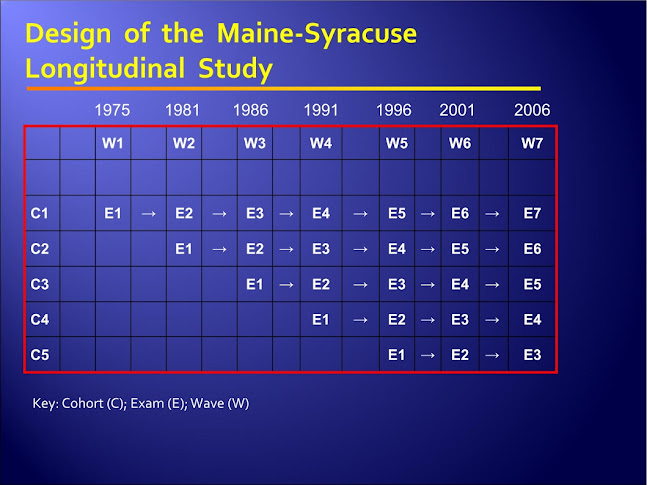Elias, M. F. & Goodell, A. L. (2020). Human errors in automated office blood pressure measurement: Still room for improvement. Hypertension, 77(1), 6-15. doi:10.1161/hypertensionaha.120.16164
Elias, M. F., Torres, R. V., & Davey, A. (2018). Clinical trials of blood pressure lowering and antihypertensive medication: Is cognitive measurement state-of-the-art? American Journal of Hypertension, 31, 631-642. doi: 1093/ajh/hpy0
Elias, M. F., Torres, R. V, & Davey, A. (2018). Clinical trials of blood pressure lowering and antihypertensive medication: Is cognitive measurement state-of-the-art? American Journal of Hypertension, 31, 631-642. doi:10.1093/ajh/hpy033/4897751
Torres, R. V., Elias, M. F., Seliger, S., Davey, A., & Robbins, M. A. (2016). Risk for cognitive impairment across 22 measures of cognitive ability in early-stage chronic kidney disease. Nephrology, Dialysis and Transplantation. doi: 10.1093/ndt/gfw005
Elias, M. F., Crichton, G. E., & Abhayaratna, W. P. (2015). Interactions between plasma homocysteine and arterial stifness in chronic kidney disease in community-dwelling individuals: The Maine-Syracuse Study. Journal of Human Hypertension, 29, 726-731. doi:10.1038/jhh.2015.17
Crichton, G. E., Elias, M. F., Dore, G. A., Torres, R. V., & Robbins, M. A. (2014). Measurement-to-measurement blood pressure variability is related to cognitive performance: The Maine-Syracuse Study. Hypertension, 64(5), 1094-1101. doi: 1161/hypertensionaha.114.04282.
Crichton, G. E., Elias, M. F., Davey, A., Sullivan, K. J., & Robbins, M. A. (2014). Higher HDL cholesterol is associated with better cognitive function: The Maine-Syracuse Study. Journal of the International Neuropsychological Society, 20, 961-970.
Davey, A., Elias, M. F, Robbins, M. A, Seliger, S. L., & Dore, G. A. (2013). Decline in renal functioning is associated with longitudinal decline in global cognitive functioning, abstract reasoning, and verbal memory. Nephrology Dialysis and Transplantation, 28, 1810-1819.
Elias, M. F., Goodell, A. L., & Dore, G. A. (2012). Hypertension and cognitive functioning: A perspective in historical context. Hypertension, 60, 260-268.
Elias, M. F., Elias, P. K., Seliger, S. L., Narsipur, S. S., Dore, G. A. & Robbins, M. A. (2009). Chronic kidney disease, creatinine and cognitive functioning. Nephrology, Dialysis and Transplantation, 24, 2446-2452.
Elias, M. F., Robbins, M. A., Budge, M. M., Brennan, S. L., Johnston, C., Nagy, Z., & Bates, C. J. (2006). Homocysteine, folate, vitamin B6 and B12 blood levels in relation to cognitive performance: The Maine-Syracuse Study. Psychosomatic Medicine, 68, 547-55
Elias, P. K., Elias, M. FRobbins, M. A., Budge, M. M. (2004). Blood pressure-related cognitive decline: Does age make a difference? Hypertension, 44, 631-636.
Elias, M. F., Robbins, M. A., Elias, P. K., & Streeten, D. H. P. (1998). A longitudinal study of blood pressure in relation to performance on the Wechsler Adult Intelligence Scale. Health Psychology, 17, 486-493.
Robbins, M. A., Elias, M. F., Croog, S.H. & Colton, T. (1994). Unmedicated blood pressure levels and quality of life in elderly hypertensive women. Psychosomatic Medicine, 56, 251-259.
Hoeldtke, R. D., & Streeten, D. H. P. (1993). Treatment of orthostatic hypotension with erythropoietin. New England Journal of Medicine, 329, 611-615.
Elias, M. F., Sullivan, L. M., Elias, P. K., D’Agostino, R. B., Sr., Wolf, P. A. Seshadri, S., Au, R., Benjamin, E. J., & Vasan, R. S. (2007). Left ventricular mass, blood pressure and lowered cognitive performance in the Framingham Offspring. Hypertension, 49, 439-445.
Elias, M. F., Sullivan, L. M., Elias, P. K., Vasan, R. S., D’Agostino, R. B., Sr., Seshadri, S., Au, R., Wolf, P. A., & Benjamin, E. J. (2006). Atrial fibrillation is associated with lower cognitive performance in the Framingham Offspring men. Journal of Stroke and Cerebrovascular Diseases, 15, 214-222.
Elias, M. F., Elias, P. K., Sullivan, L. M., Wolf, P. A., & D’Agostino, R. B. (2005). Obesity, diabetes and cognitive deficit: The Framingham Heart Study. Neurobiology of Aging, 26S, S11-S16.
Elias, M. F., Sullivan, L. M., D’Agostino, R. B., Elias, P. K., Jacques, P. F., Selhub, J., Seshadri, S., Au, R., Beiser, A., & Wolf, P. A. (2005). Homocysteine and cognitive performance in the Framingham Offspring Study: age is important. American Journal of Epidemiology, 162, 644-653.
Elias, P. K., Elias, M. F., D'Agostino, R. B., Sullivan, L. M., & Wolf, P. A. (2005). Serum cholesterol and cognitive performance in the Framingham Heart Study. Psychosomatic Medicine, 67, 24-30.
Seshadri S., Wolf P. A., Beiser A., Elias M. F., Au R., Kase C. S., D’Agostino R. B., & DeCarli C. (2004). Stroke risk profile, brain volume and cognitive function: The Framingham Offspring Study. Neurology, 63, 1591-1599.
Elias, M. F., Sullivan, L. M., D’Agostino, R. B., Elias, P. K., Beiser, A., Au, R., Seshadri. S., DeCarli, C., & Wolf, P. A. (2004). The Framingham stroke risk profile and lowered cognitive performance. Stroke, 35, 404-409.
Elias, M. F., Elias, P. K., Sullivan, L. M., Wolf, P. A., & D’Agostino, R. B. (2003). Lower cognitive function in the presence of obesity and hypertension: The Framingham Heart Study. International Journal of Obesity and Related Metabolic Disorders, 27, 260-268.
Elias, M. F., Beiser, A., Wolf, P. A., Au, R., White, R. F., & D'Agostino, R. B. (2000). The preclinical phase of Alzheimer's disease: A 22-year prospective study of the Framingham cohort. Archives of Neurology, 57, 808-813.
Elias, P. K., Elias, M. F., D'Agostino, R. B., Silbershatz, H., & Wolf, P. A. (1999). Alcohol consumption and cognitive performance in the Framingham Heart Study. American Journal of Epidemiology, 150, 580-589.
Elias, P. K., Elias, M. F., D'Agostino, R. B., Cupples, L. A., Wilson, P. W., Silbershatz, H., & Wolf, P. A. (1997). NIDDM and blood pressure as risk factors for poor cognitive performance: The Framingham Study. Diabetes Care, 20, 1388-1395.
Elias, M. F., Wolf, P. A., D'Agostino, R. B., Cobb, J., & White, L. R. (1993). Untreated blood pressure level is inversely related to cognitive functioning: The Framingham Study. American Journal of Epidemiology, 138, 353-364.





